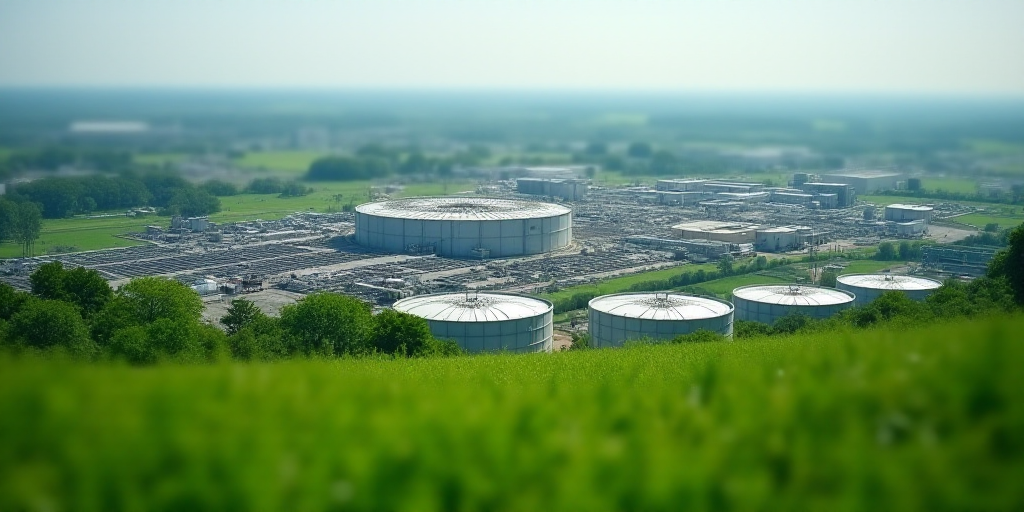Global Sustainability Trends Reflect in Mexico
In a global context where sustainability has become a strategic priority, Mexico is not lagging behind. The country’s environmental regulations are undergoing a process of tightening and expansion that directly impacts all industrial sectors. As Mauricio Llamas, a partner at Hogan Lovells in Mexico and a national reference on environmental law, explained to El Economista, this regulatory transformation is redefining the rules of the game for companies operating in Mexico.
Pressure from Multiple Sources
Llamas pointed out that pressure on compliance does not only come from regulatory bodies. Social networks and public opinion are playing an increasingly important role, amplifying environmental incidents, questioning companies, and influencing government decisions.
Visible Consequences
Sofía de Llano, a partner at Hogan Lovells Mexico, highlighted that water management is one of the most concerning and transformative aspects. The future points towards a structural reform that positions access to water as a prioritized human right.
Implications for Industry
De Llano explained that industries will face greater restrictions in overexploited zones, prioritize domestic consumption, and experience growing pressure to demonstrate efficiency. Adopting reuse technologies and reducing water consumption will become essential, as obtaining or maintaining concessions becomes increasingly complex.
The mining sector, historically strategic for Mexico, now faces stricter requirements following 2023 reforms. Mandatory indigenous consultations, transparency in water usage, post-extraction environmental restoration, and more rigorous hazardous waste management are now mandatory.
Circular Economy Gains Momentum
The circular economy is also gaining ground forcefully. Products like tires, electronics, and plastics now require specific management plans. Extended producer responsibility is no longer a theory but a concrete legal requirement. More than 15 states have legislated against single-use plastics, obliging companies to redesign packaging, adapt production and commercial processes, and ensure compliance across their value chains.
Environmental Taxation
Llamas also noted that environmental taxation has become a powerful tool for public policy. Ecological taxes on emissions, waste, or natural resource extraction have been implemented in several states, although some sectors have challenged them. Most, however, have been judicially validated. For many companies, this translates to increased operational costs, especially if not anticipated in their tax and environmental strategies.
Climate Change Adds Complexity
De Llano added that climate change adds another layer of complexity. Prolonged droughts, record-breaking heatwaves, and extreme weather events necessitate operational adaptations. Many projects now undergo climate impact assessments as part of financing or permit acquisition processes. Climate resilience is becoming a crucial criterion for technical and financial viability.
Regulation: Opportunity or Risk?
Experts agree that the question of whether regulation is a barrier or an opportunity lies in anticipation. Companies integrating environmental criteria into their strategic decisions promptly will be better positioned to face audits, attract sustainable financing, strengthen their reputation, and gain a competitive edge in markets valuing environmental commitment.
“Viewing environmental regulation as an obstacle is staying in the past. In reality, it represents the inevitable direction of industrial development. Companies understanding its logic, preparing in advance, and adopting a proactive vision will lead Mexico’s new green economy,” Llano stated.
Key Questions and Answers
- What does the new environmental regulation in Mexico imply for industry? Greater restrictions in overexploited zones, prioritizing domestic water consumption, and increasing pressure to demonstrate efficiency through technology adoption and reduced water usage. Obtaining or maintaining concessions will become more complex.
- How does climate change impact industrial operations in Mexico? Prolonged droughts, record-breaking heatwaves, and extreme weather events necessitate operational adaptations. Many projects now undergo climate impact assessments, and climate resilience is a crucial criterion for technical and financial viability.
- What role do social networks and public opinion play in environmental compliance? They amplify environmental incidents, question companies, and influence government decisions, adding pressure beyond regulatory bodies.
- How has the circular economy been promoted through regulation in Mexico? Specific management plans are now required for products like tires, electronics, and plastics. Extended producer responsibility is a concrete legal requirement, with more than 15 states legislating against single-use plastics.
- What are the implications of environmental taxation for businesses? Ecological taxes on emissions, waste, or natural resource extraction have increased operational costs for many companies, especially if not anticipated in tax and environmental strategies.






